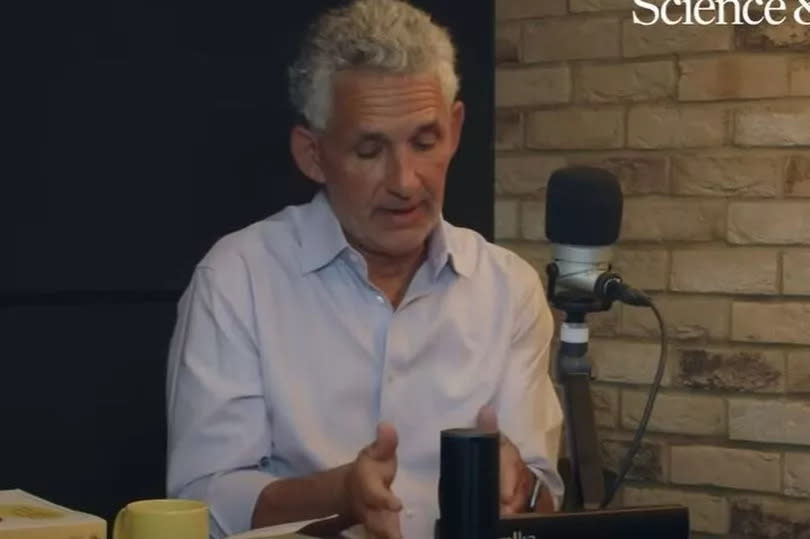Professor Tim Spector explains 'incredibly surprising' breakfast food soaked in pesticides

Nutritional scientist Tim Spector has explained what the ‘worst’ foods are for containing pesticides - and it includes one of the healthiest breakfast ingredients. Speaking on the Zoe podcast, the professor of genetic epidemiology at King’s College London and founder of the Zoe health app was discussing chemicals - and if supposedly “healthy” organic foods can actually be full of them.
On the show, which can be listened to here, he was asked which foods were likely to be worst for pesticides and Prof Spector said: “Breakfast cereals that contain oats.” Zoe CEO Jonathan Wolf described it as ‘incredibly surprising’ and admitted he thought it was most likely to be fruit which had been sprayed.
Prof Spector explained: “So, oats, because they’re often raised in damp countries, they are sprayed just before they’re harvested to dry them out and so this gives them massive amounts. And because they’re wet, they absorb all all that glyphosate, and so their levels are 5 to 10 times more than many other grains.
“So that is something that is not particularly a health food but I think people should go out of their way if they do love oats, you know, and you can afford it, switch to something else or particularly if you’re trying to give your kids something which you think is healthy I think that you could be giving them high levels of, particularly this herbicide, Glyphosate.”
Even more worrying was rice - which Prof Spector said surveys showed potentially contain a lot of pesticides. He explained: “We do know that if you get certain areas of India and Pakistan you do get a problem with runoff of arsenic into rice paddy fields. So if you’re getting cheap rice from certain places you know, you may be ingesting a lot of chemicals.”
Fruits and vegetable which contain a lot of water will tend to absorb these chemicals more than others, he said. These include cucumbers, pears and nectarines which have ‘high concentrations’.
He added: “Everyone loves strawberries. I love strawberries, but in tests in the US and the UK, they commonly get tested as being above the safety levels. If you have, you know, strawberries just once a year, it’s probably not worth worrying about it, but if this is like part of your, regular thing. Just see if you know you can get organic strawberries.” Mr Wolf said one option was to swap to a different fruit that has lower levels that might still be cheaper like frozen organic blueberries.
The pair also talked about canned and frozen organic food as being options for alternatives. In terms of making the fruit and veg people buy less saturated in chemicals they said that washing well was an option, but didn’t get rid of that which has permeated inside.
Prof Spector said: “Washing helps, but it doesn’t get it down to level. It doesn’t get it down anywhere near to organic level. You can peel them. That will remove some more. You know, that’s probably one reason to peel cucumbers, which I never used to do, by the way. But if you can’t get an organic one, you know, probably peeling, it gets rid of perhaps half, but a lot of it might go beyond the skin.”
He also explained a hack using sodium bicarbonate baking soda to wash them which removes a lot of the pesticides. He added that mangos, onions and avocados were eaten minus the skin, so are probably ok.

 Yahoo News
Yahoo News 
